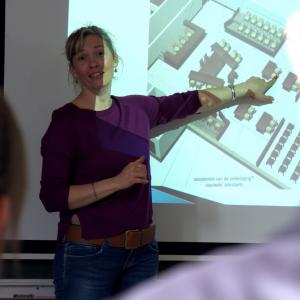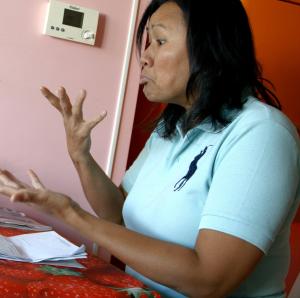Procedure
The application procedure for residence in Belgium depends on your status. Below you can find an overview of the possible statuses one can have and the information suitable for each status. Firstly, migrants originating from countries within Europe, EU-citizens, are distinguished from migrants coming from elsewhere, outside Europe, so-called third-country nationals.
For third-country nationals
Asylum seekers
When you want to obtain rights in Belgium being a third-country national, you first have to register. Registration can be done in three ways:
- At the Dienst Vreemdelingenzaken (Service for Foreigners Affairs, DVZ) offices in Brussels, at the latest within 8 working days after arriving in Belgium.
- At the border police, when you have been stopped by them at the border; the third-country national must apply as soon as possible after arrival at the border.
- At the prison management or a detention centre after being arrested and locked up.
When registrating a foreigner’s asylum application, the Service for Foreigners Affairs will take note of the asylum seeker’s identification data such as name, date of birth, nationality. The Service for Foreigners Affairs will also take up all useful documents brought along by the asylum seeker.
During registration, the Service for Foreigners Affairs will take:
- A picture of the asylum seeker: this picture will be included within the document serving as proof of the asylum application (attachment 26)
- Fingerprints (of those older than 14 years old): that way, the Service for Foreigners Affairs can look up whether or not the asylum seeker has applied for asylum in another EU-country before, and whether or not the asylum seeker arrived into the EU via another country than Belgium
- An x-ray of the lungs (of those older than 6 years old; not applicable to pregnant women): to be able to see whether or not the asylum seeker is suffering from tuberculoses (TBC); when diagnosed with TBC, one will be hospitalized
- An x-ray of one’s hand in case of doubt about an unaccompanied minor’s age: the Dienst Voogdij (Service for Child Custody, Federal Government Department of Justice) will then decide upon the declaration of minority.
Once registered, you will receive an orange card (registration). This card is proof of your provisional residence in Belgium until the Commissariaat-Generaal voor de Vluchtelingen en de Staatslozen (General Commission for Refugees and Stateless Persons, CGSV) decides upon your asylum application. This differs from being signed up in the foreigners’ register. However, having an orange card allows you to look for shelter in a Fedasil centre. There you will be offered a bed, food, basic care and day-to-day money. Also, you will obtain the right to individualised social support. To make use of this support, access to a social service will be provided to you. A social worker will inform and coach you.
The shelter will also provide legal advice. You have a right to primary and secondary legal assistance:
- Primary assistance consists of free legal advice offered by legal practicioners during legal permanence. These moments of permanence will be organized by the Palaces of Justice, District Courts, Houses of Justice, some local authorities, Public Centres for Social Action (CPAS or OCMW in Dutch) and diverse non-profit organisations that offer legal services.
- Secondary assistance means free access to assistance by a lawyer when involved in a lawsuit or an adminstrative procedure. You can count on the offices for legal advice when you wish to be assisted by a public defender.
More information is available at here.
Having an orange card does not automatically grant you the right to work. However, a social worker or a lawyer can apply for a professional card C for you. Then, after a 4-month waiting period, you can be granted the right to work. Also, you can get the right to interpreting hours in work-related contexts by applying yourself to the VDAB.
Right now you primarily have to wait for a hearing at CGSV (General Commission for Refugees and Stateless Persons). It is of utmost importance to prepare your hearing well in advance in cooperation with your lawyer. To be able to let the communication with your lawyer run smoothly, you can make use of interpreters. Also, the lawyer can ask its office for legal assistance for financial support in the interpreter cost. You don not have to pay this cost yourself. For a hearing to run smoothly CGSV will book interpreters itself. You can renounce this right, but then you will have to communicate in spoken French or Dutch yourself.
More information on interpretation during a hearing
More information on the entire hearing
After the hearing, the application will be taken a closer look upon. The motivation for your request for asylum will be judged: is it sufficient to attribute a refugee status to you or not? First, the criteria laid down in the Geneva Convention will be looked at. The convention states a refugee to be someone “who owing to a well-founded fear of being persecuted for reasons of race, religion, nationality, membership of a particular social group or political opinion, is outside the country of his nationality and is unable or, owing to such fear, is unwilling to avail himself of the protection of that country; or who, not having a nationality and being outside the country of his former habitual residence as a result of such events, is unable or, owing to such fear, is unwilling to return to it.” If this status does not apply, it will be judged whether or not the applyer would be in true risk of severe damage when he returns to the country of his nationality (death penalty, inhuman or humiliating treatments, severe threat by random violence, by an international or national armed conflict). In that case CGVS will attribute the status of subsidiary protection to you.
When you disagree with the attributed status, you can contest the decision by lodging an appeal at the Council for Foreigners Disputes (Raad voor Vreemdelingenbetwistingen, RvV).
When you are attributed a foreigners status, you are able to sign up for the foreigners register at the municipality you are staying at. As such, you will receive an A-card. After having stayed in Belgium for a period of 5 years, you will be able to be granted a permanent B-card.
For family members (family reunification)
Being a third-country national and having a family member living in Belgium, you can stay in Belgium if you are married to a Belgian person, if you are the legal partner of a Belgian person, if you are the parent of a Belgian minor, or if you are the child or grandchild of a Belgian person or their partner.
Also in case you are a family member of a third-country national who has been attributed a refugee status, you have the right to family reunification.
For students
Do you want to study in Belgium being a third-country student? In that case, you have to meet a number of conditions.
All information on third-country students
For EU-citizens
For family members
Being an EU-citizen and having a family member living in Belgium, you are allowed to reside in Belgium if you are married to that Belgian citizen, if you are the legal partner of this person, if you are the parent of a Belgian minor, or if you are the child or grandchild of a Belgian person or their partner.
For employees, employers and freelancers
EU-citizens are allowed to reside in Belgium without a residence permit for a period of 3 months. If you want to reside in Belgium for a longer period, you must be able to proof you are currently employed or looking for a job.
All information for those who are looking for a job
All information for freelancers
For students
Do you want to attend (hogher) education in Belgium? Then you need to meet a number of conditions.
All information for EU students
Assimilation course
Being a newcomer in Belgium, you are in some cases obliged to attend an assimilation course. This course consists of two parts: a Dutch course and a Social Orientation course. The Dutch course varies in language level, course location and timing. The Social Orientation course sheds light on topics such as life, work, living, education and mobility in Flanders.
In Mechelen, there is one Dutch and Social Orientation course which is accessible for deaf people. Any other course can be made accessible by booking a (speech-to-text) interpreter.
More information on assimilation courses
More information on whether or not you are obliged to attend such a course
Healthcare
Depending on your status, you have a certain right to health care during your procedure. Most of the time EU-citizens can rely on their health insurance within the country of origin. Asylum seekers and recognized refugees have a right to certain types of material and financial support. Healthcare consists of various types of care, such as a visit to a general practicioner, psychological councelling or particular medical care.
More information on your right to healthcare depending on your status
Mobility
Public transport
Public transport in Flanders consists of buses, trams, subways and trains. The company De Lijn is responsible for organizing bus, tram and subway traffic, whereas the company NMBS provides public transport by train. Once registered as a disabled person by the VAPH (Flemish Agency for Disabled People), you have a right to a free pass to make use of De Lijn’s services. However, this will not be the case during your migration period. During that period you do have a right to a social public transport pass, if, being an asylum seeker, you are staying at a shelter managed by Fedasil, the Red Cross or Vluchtelingenwerk Vlaanderen (Work for Refugees Flanders). This public transport pass costing € 43,- a year will be applied for by the shelter management and makes it possible for you to use De Lijn’s buses, trams and subways all over Flanders. In Brussels more than one public transport company is active, due to which you will not be able to make use of your pass there everywhere.
More information about Public transport
Drivers license
A Belgian drivers license can only be obtained when you are in the possession of a Belgian passport. A drivers license that was issued to you within the European Economic Area (Europe, Norway, Lichtenstein and Iceland) is valid in Belgium too. In that case you are not in need of a Belgian drivers license. Also an international drivers license will be accepted by the Belgian government.
As soon as you are in the possession of a Belgian passport, you can apply for a Belgian drivers license.
More information about drivers license


 Language courses VGT & NL
Language courses VGT & NL The migration procedure
The migration procedure My rights and obligations
My rights and obligations Overview of organizations
Overview of organizations Deaf clubs in Flanders
Deaf clubs in Flanders Information for services
Information for services